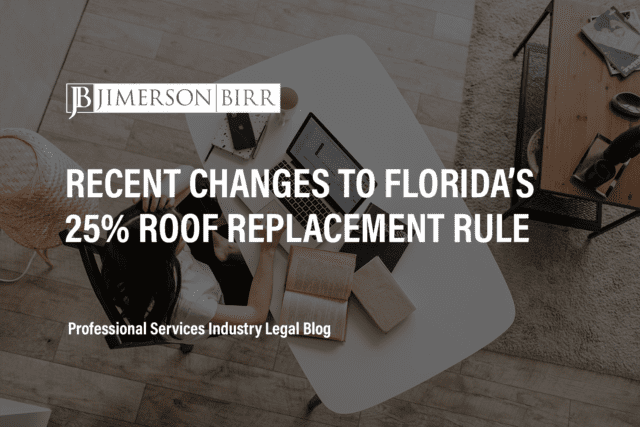What is unfair competition, and what are restrictive covenants?
In Florida, unfair competition refers to any business conduct contrary to the ethical practice of commercial matters. It can include interference with business relations, misappropriation of trade secrets, and trademark infringement. In addition, Florida law allows for causes of action arising from unfair competition.
Restrictive covenants, on the other hand, are contractual agreements that limit the activities of employees or former employees after they leave a company. These may include non-compete agreements, non-solicitation agreements, or confidentiality agreements. Florida law allows restrictive covenants to protect a company’s legitimate business interests without stifling competition and free trade. Generally, restrictive covenants are enforceable if their restrictions are reasonable and necessary to protect an employer’s legitimate business interest.
Florida businesses must understand unfair competition and restrictive covenants and work with experienced legal counsel to ensure their business practices and employment agreements comply with Florida law.
Need help with unfair competition and restrictive covenant actions? Schedule your consultation today with a top business litigation attorney.
What legal issues typically arise related to unfair competition and restrictive covenants?
The following disputes are among the most common to unfair competition and restrictive covenants:
- Enforceability: One of the primary legal issues related to restrictive covenants is whether the agreement is enforceable. A restrictive covenant is enforceable if reasonable in geographical scope and duration. The geographical scope limitation is subjective and based on the employer’s location and type of business. For example, a local ice cream shop may be able to enforce a restrictive covenant in the county but not for the entire state.
- Legitimate business interest: Parties frequently dispute whether the employer has a legitimate business interest justifying the covenant’s enforcement. Florida law identifies trade secrets, substantial relationships with prospective clientele, customers, specialized training, and other confidential or professional information as legitimate business interests. However, Florida courts can and will go beyond this list based on the particular industry and case-specific facts.
- Breach of contract: If an employee violates a restrictive covenant agreement, the employer may sue for breach of contract. The employer must prove that the employee violated the agreement and caused harm to the business.
- Public policy considerations: Courts in Florida may consider public policy concerns when evaluating enforceability and reasonableness. For example, Florida law recognizes the importance of employee mobility. Therefore, non-compete agreements that unduly restrict employees’ ability to work in their chosen profession or geographic region may be against public policy. Florida law also protects public access to doctors and lawyers, meaning that some restrictive covenants may be enforceable in one industry but not in the medical or legal fields.
What are relevant laws related to unfair competition and restrictive covenants in Florida?
Florida Statutes related to unfair competition and restrictive covenants include the following:
- Section 542.335: This statute governs the enforceability of restrictive covenants in Florida and includes a non-exhaustive list of legitimate business interests.
- Chapter 688: The Uniform Trade Secrets Act governs the protection of trade secrets in Florida and provides legal remedies for employers that have had their trade secrets misappropriated. The statute also includes requirements for trade secret protection under Florida law. Trade secrets are a commonly accepted legitimate business interest.
- Chapter 501: The Florida Deceptive and Unfair Trade Practices Act (FDUPTA) prohibits unfair and deceptive business practices in Florida. It provides a private right of action for individuals and businesses harmed by unfair competition practices, such as false advertising, misleading marketing, and other deceptive practices.
Some Florida law related to unfair competition and restrictive covenants does not come from statutes but rather from case law based on the decisions of Florida courts in previous cases. For example, Florida courts established the standards for enforceability of restrictive covenants and the requirements for proving unfair competition, which the legislature later codified.
The Florida Supreme Court provided further guidance on what could be considered a legitimate business interest. White v. Mederi Caretenders Visiting Servs. of Se. Fla., LLC, 226 So. 3d 774, 784–85 (Fla. 2017). There, the court decided a legitimate business interest is an asset that, if misappropriated, would give its new owner an unfair competitive advantage over the former owner. In the White case, the court considered home health service referrals the legitimate business interest of a home healthcare company that provided nursing and physical therapy services to homebound patients. 226 So. 3d at 786.
What is required to prove cases of unfair competition and restrictive covenants in Florida?
Generally, all unfair competition cases in Florida require the following core elements:
- Deceptive or fraudulent conduct of a competitor;
- A likelihood of consumer confusion, meaning that the plaintiff must show that he and his opponent compete for a shared pool of customers; and
- Other elements, such as time, labor and money spent, competition, and commercial damage, are specific to the alleged form of unfair competition.
To prove a restrictive covenant is valid and enforceable, the plaintiff must prove the following:
- The restrictive covenant is in writing and signed by the defendant;
- The restrictive covenant must be reasonable in time, area, and line of business;
- A legitimate business interest exists to justify the restrictive covenant; and
- The restrictive covenant is reasonably necessary to protect the legitimate business interest.
When a set of facts is appropriate to meet the requirements of unfair competition and restrictive covenants, there are many paths a claimant may take. We are value-based attorneys at Jimerson Birr, which means we look at each action with our clients from the point of view of costs and benefits while reducing liability. Then, based on our client’s objectives, we chart a path forward to seek appropriate remedies, such as:
- Temporary and permanent injunctive relief
- Damages
- Attorneys’ costs and fees
To see what actions may be available for your unique situation, please contact our office to set up your initial consultation.
What are common defenses to unfair competition and restrictive covenants in Florida?
The primary defenses to unfair competition and restrictive covenants in Florida include:
- Unenforceable: The defendant could contend the agreement is unenforceable because it is too broad, restrictive, violative of public policy, or a product of coercion.
- Lack of harm: The plaintiff must suffer harm due to the alleged unfair competition or breach of the restrictive covenant agreement. Therefore, the defendant may argue that the plaintiff’s loss of business was due to other factors, such as changing market conditions, rather than the defendant’s actions.
- Unclean hands: If the plaintiff engaged in unfair business practices or violated the restrictive covenant agreement themselves, they might not be entitled to relief.
- Statute of limitations: The defendant may argue that the statute of limitations, which sets forth a time limit for filing legal claims, bars the plaintiff’s claim.
Defendants must work with experienced legal counsel to identify and pursue appropriate defenses to unfair competition and restrictive covenant claims in Florida. To see what defenses may be available for your unique situation, please contact our office to set up your initial consultation.
Have more questions about an unfair competition and restrictive covenants-related situation?
Crucially, this overview of unfair competition and restrictive covenants does not begin to cover all the laws implicated by this issue or the factors that may compel the application of such laws. Every case is unique, and the laws can produce different outcomes depending on the individual circumstances.
Jimerson Birr attorneys guide our clients to help make informed decisions while ensuring their rights are respected and protected. Our lawyers are highly trained and experienced in the nuances of the law, so they can accurately interpret statutes and case law and holistically prepare individuals or companies for their legal endeavors. Through this intense personal investment and advocacy, our lawyers will help resolve the issue’s complicated legal problems efficiently and effectively.
Having a Jimerson Birr attorney on your side means securing a team of seasoned, multi-dimensional, cross-functional legal professionals. Whether it is a transaction, an operational issue, a regulatory challenge, or a contested legal predicament that may require court intervention, we remain a tireless advocate every step of the way. Being a value-added law firm means putting the client at the forefront of everything we do. We use our experience to help our clients navigate even the most complex problems and come out the other side triumphant.
If you want to understand your case, the merits of your claim or defense, potential monetary awards, or the amount of exposure you face, you should speak with a qualified Jimerson Birr lawyer. Our experienced team of attorneys is here to help. Call Jimerson Birr at (904) 389-0050 or use the contact form to set up a consultation.

We live by our 7 Superior Service Commitments
- Conferring Client-Defined Value
- Efficient and Cost-Effective
- Accessibility
- Delivering an Experience While Delivering Results
- Meaningful and Enduring Partnership
- Exceptional Communication Based Upon Listening
- Accountability to Goals











